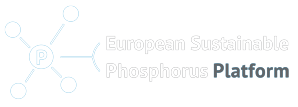A report for the Netherlands Government assesses possibilities for recovery of nutrients (other than phosphorus and nitrogen) from waste streams. Based on criticality of mineral resources and importance for agriculture, priorities are identified as: boron, cobalt, copper, potassium, molybdenum, selenium and zinc. Waste streams considered include sewage, industrial wastes, municipal solid waste, animal by products, coal ashes and other ashes. The report recommends further research into agricultural use of sewage biosolids (after e.g. composting) but notes the need to address possible risks of organic contaminants. The following recovery routes are identified as having potential: bioleaching and phytoremediation (plant uptake of metals), polymer assisted ultrafiltration (PAUF), fly ash wasting / metal separation (FLUWA) and the Ecophos process (recovery of other nutrients in the residue after phosphorus recovery). Particular potential is noted for zinc and potassium from sewage sludge, Ecophos residues and municipal waste incineration bottom and fly ash (MWIP); copper from MWIP; boron, cobalt and selenium from coal ashes.
“Possibilities and opportunities for recovery of nutrients other than phosphorus. An exploratory research”, by Tauw for the Netherlands Ministry for Infrastructure and the Environment, 29 September 2017, project n° 1244882 www.nutrientplatform.org/wp-content/uploads/2017/10/Possibilities-and-opportunities-for-recovery-of-nutrients-other-than-phosphorus-R001-1244882KJU-wga-V01-NL.pdf
